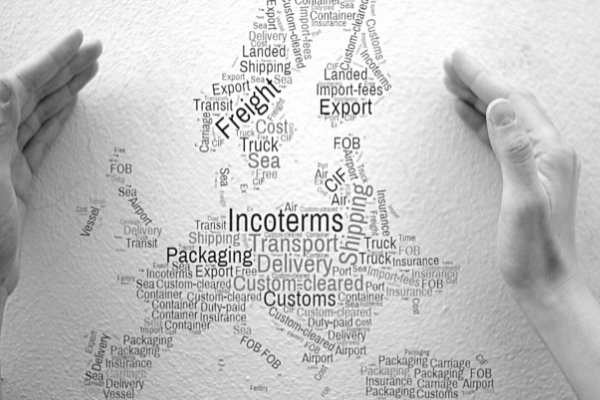New to Exporting? Where to Start?
BY:
Tim Hiscock
18 August 2021
SHARE:
Most British businesses don’t export.
Why would they? The United Kingdom is the 5th largest economy in the world, with 66 million consumers, most with pretty healthy disposable incomes by world standards. And of course, many businesses are based on providing products or services that are, by their nature, local. Independent retailers, garages, bakeries, hairdressers, most of the businesses we interact with in a typical day are unlikely to have exporting in their sights any time soon.
Why would they? The United Kingdom is the 5th largest economy in the world, with 66 million consumers, most with pretty healthy disposable incomes by world standards. And of course, many businesses are based on providing products or services that are, by their nature, local. Independent retailers, garages, bakeries, hairdressers, most of the businesses we interact with in a typical day are unlikely to have exporting in their sights any time soon.
But for a large minority, exporting can be a way to transform an enterprise. Manufacturers are probably who we would think of as the most likely candidates, but the world is changing. The United Kingdom is now exporting almost as much by value in services rather than physical products. Much of this is financial services, but it can also include IT services, marketing, technical, legal, and creative services. These are the exports we call “invisibles”, and the digital age has made it ever more possible to ply such wares on a global basis.
Growing from a local or national business to an international one can be a thrilling if often risky venture. To succeed, a new exporter needs a very clear understanding of their goals, one that is based on careful research and, crucially, a realistic assessment of their own capabilities. The first question a would-be exporter must be able to answer is why?
When the objectives are clear, it’s time to get more specific and the big question is almost always where? Some businesses try to take on the whole world at once, and some even succeed, but for most, a well-defined strategy is the way to build success. The most suitable markets are different for every business and need to be identified from a thorough understanding of the business, its products, its resources, and its key success factors. The business that transforms into successful exporting invariably understands what he been the key to succeeding at home and uses that knowledge to seek out comparable opportunities elsewhere.
That’s why you can rarely define your target markets from raw data alone. It sometimes makes me cringe when I hear some expert claiming with all sincerity that a certain country or region is “great for British exporters”. Which exporters do they mean? A feature of a market may be a great selling point for one supplier while being an insurmountable obstacle for another. Devising a winning export strategy is in fact a very personal task, and generalisations are not helpful.
And yet if the business doesn’t have a strategy, attempts to export can be a very expensive waste of time. To target efforts effectively needs careful research. This starts by defining what a suitable export market looks like. There are many possible ways to define this, but it can include factors such as population, incomes, measures of development. It can also include more nebulous features such as culture, taste, and lifestyle. An effective way to compare markets is to identify key factors that are measurable, consider the relative importance of each and build a score sheet for each country. This can be a bit of an onerous task, but there are ways to lighten the task, such as reliable online reports that score countries according to key characteristics including ease of doing business, corruption, spending habits, consumer trends etc.
All of this is explained in our unique support package for aspiring exporters.
It can save weeks or months of frustration and help you to fulfil your export aspirations!
International Trade Up-dates into your inbox twice a month
Would you like to keep up to date on customs and international trade issues – subscribe to our OneCall service which combines regular practical updates (Did You Know?) and a helpline support service as well as an interactive members' area with a members' only community.
Spotlight & Training Updates Newsletter
Subscribe to our free information emails covering international trade topics...









